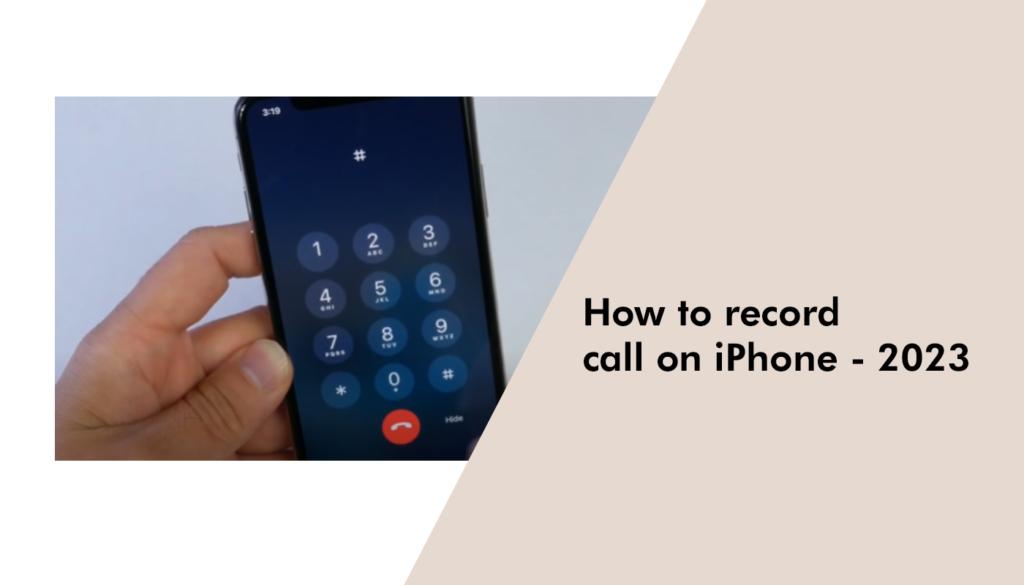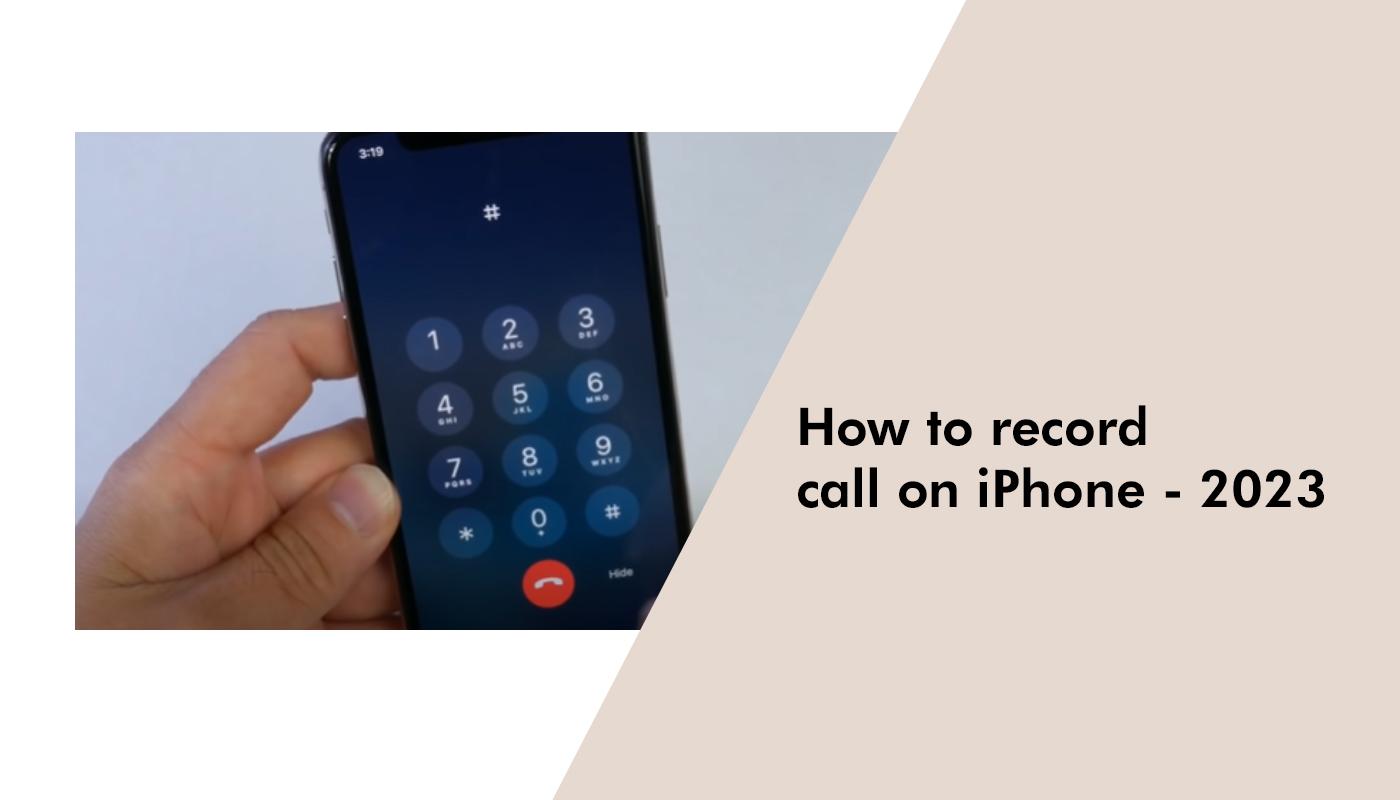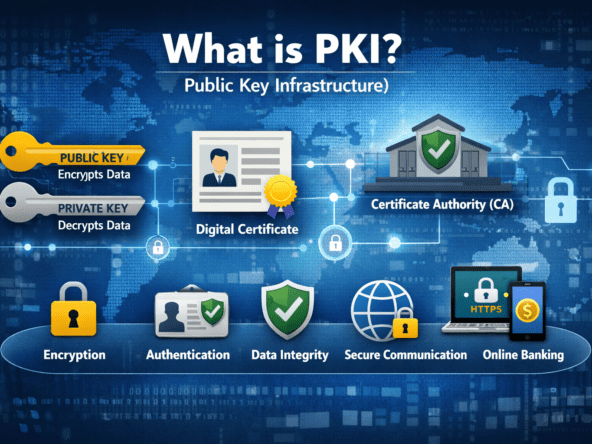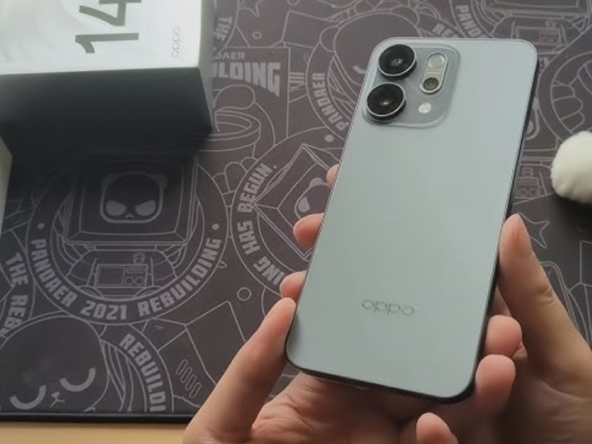Do you need to record an important call on your iPhone? Whether it’s for legal reasons, or just a way to save the conversation for later reference, recording calls on an iPhone is possible. Here’s how:
1. Use a Third-Party App – There are several apps available in the App Store that allow you to record phone conversations directly from your device. These include TapeACall Pro and Call Recorder Lite (both paid). Once installed, open up the app and follow its instructions carefully. You may be asked to briefly put your current call on hold while setting up conference calling with another line provided by the app itself – this is necessary so that both sides of the conversation can be recorded properly.
2a) Record Incoming Calls – To start recording incoming calls using one of these third-party apps all you have to do is answer a call as normal then open up TapeACall Pro or Call Recorder Lite and press ‘Record’ once prompted; this will add both parties into a three-way conference where everything said will be recorded until either party hangs up their end of the line (or if one person leaves voicemail).
2b) Record Outgoing Calls – Recording outgoing calls works slightly differently depending upon which app you choose but generally involves pressing ‘Record’ before dialing out then merging both lines together once connected; again making sure everyone involved remains in contact until each side has hung up completely otherwise only part of what was said might get captured during playback afterwards when reviewing recordings made through either service provider mentioned above respectively…

3) Be Aware Of Local Laws – Please bear in mind that laws regarding telephone recordings vary from country/state/region etc., so make sure any audio files created comply with applicable legislation at all times!
Call recording has been a long-standing feature in the world of telecommunication and has become a staple in personal and professional settings alike. With the rise of the smartphone, call recording has become easier and more accessible, and the iPhone is no exception. In this blog post, we’ll take a comprehensive look at call recording on the iPhone, including how to enable it, the different methods for recording calls, and the legal considerations to keep in mind.
Enabling Call Recording on iPhone
Apple does not provide a built-in call recording feature for the iPhone. However, there are several third-party apps available in the App Store that allow you to record calls on your iPhone. Before you can use any of these apps, you’ll need to allow the app to access your microphone. This can be done by going to “Settings” > “Privacy” > “Microphone” and turning on the switch next to the app you want to use for recording.
Methods for Recording Calls on iPhone
There are two main methods for recording calls on the iPhone: through a third-party app or through a call recording service.
Third-Party Apps
There are a variety of third-party apps available in the App Store that allow you to record calls on your iPhone. Some popular options include TapeACall, Call Recorder Lite, and Rev Call Recorder. Most of these apps work by using a three-way call system, where the third party app calls your iPhone and the person you’re trying to record, and then bridges the two calls together. This allows the app to record both sides of the conversation.
Call Recording Services
Another option for recording calls on the iPhone is to use a call recording service. These services work by giving you a unique phone number that you call before making a call. The service then records the call and saves it for you to listen to later. Some popular call recording services include Call Recorder for iPhone and Recordator.
Legal Considerations for Call Recording
It’s important to note that call recording laws vary from country to country, and even from state to state in some countries. In the United States, for example, it’s generally legal to record calls as long as one party (you) gives consent. However, some states require all parties to give consent, so it’s important to familiarize yourself with the laws in your area before recording calls.
In other countries, such as the United Kingdom, it’s legal to record calls as long as at least one party is aware that the call is being recorded. In Canada, it’s generally legal to record calls as long as the recording is for personal use.
It’s important to keep these legal considerations in mind when recording calls on your iPhone, as you could face legal consequences if you’re found to be breaking the law.
Conclusion
Call recording is a useful feature for personal and professional settings alike, and the iPhone provides several options for recording calls, including third-party apps and call recording services. However, it’s important to be aware of the legal considerations involved in call recording, as laws can vary widely from country to country and state to state. By keeping these considerations in mind, you can record calls with confidence and ease on your iPhone.




